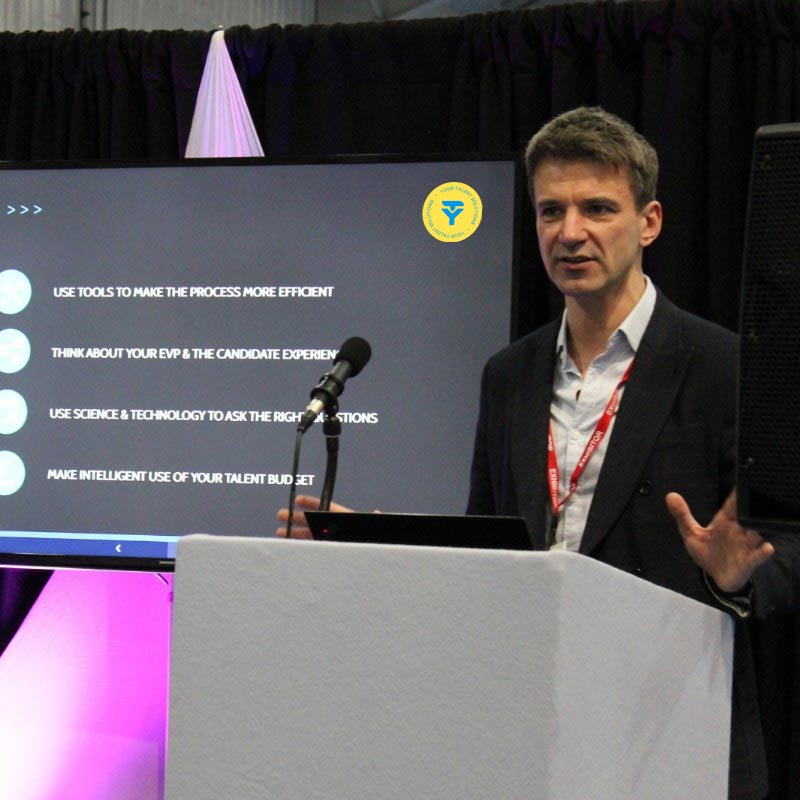
Meet The Team: David Davies
1) How do you like to spend your time outside of work?
This is going to be such a cliched answer….I’ve rediscovered golf since COVID, which is mostly what I spend my time thinking about. Namely, how I’m still quite so rubbish, and what I need to do to address it. I got my handicap down to 16 in spring, then I started a tragic decline I haven’t been able to address.
Other than golf I’m a Nottingham Forest fan, gym goer, and one of the finest ale appreciators in my local area, so I’m often found pulling into microbreweries I’ve spotted on the way back from a meeting. Then in my mancave at home, once the weekend comes it’s a golf, football and ale bonanza (in moderation).
2) What’s something you’re learning or have learned recently?
A couple of things I’ve found interesting recently:
- The huge misconceptions about Millennials in the workplace. They are potentially business superhero’s, just wildly misunderstood by Gen X management
- How to identify High Agency characteristics in a person (in an interview setting).
3) What are you passionate about?
See above, golf, Nottingham Forest, new ale and curries from the centre of the culinary universe, Birmingham. In fact, let me take this opportunity to point out Birmingham is the very best place for any kind of food right now, the choices are incredible, and it’s unfairly maligned for a number of reasons. Birmingham is such an amazing place for so many reasons, the people, the sense of humour, the nightlife and things to do, but lots of cities would stake this claim. For food however, no where beats Birmingham, and especially not for a curry.
4) Are you currently binging any shows?
I’m on the lookout for the next one. There’s a hole where Succession once was, and I’m not sure anything is quite going to replace that for a while. Other top suggestions would be Mad Men, True Detective (season 1, not necessarily the others, but it’s standalone so give it a go), The West Wing and The Wire. I recently binged all 3 seasons of Happy Valley and that actually did live up to the hype, brilliant.
5) What do you do at YTS, and what would I come to you for help with?
I help businesses with their recruitment and talent attraction strategies, this can be independent advice or supporting an existing team and structure. A recent example of a project has been for a medium-sized software development consultancy, they had an internal team and wanted to understand how effective they were and what support could be given to them. So, this included a discovery process, asking lots of questions and gathering lots of information and data to understand metrics, costs, how effective suppliers were, and the channels being used. At the end of the process we presented back a list of options, recommendations and a roadmap for improvements and further cost savings.
Another example of a project is the Career Transition & Redeployment for a financial services business. Sadly, they were possibly making around 30 people redundant, so we were on-hand to provide support to each individual in order to give them the skills and tools to own their own next move. CVs, interview support and advice, LinkedIn audits, job boards and agencies, we run a number of webinars and 1-2-1 sessions to equip everyone at their own pace and make the transition as smooth as possible.
I’m also the one that will talk to you about your EVP, how to cut costs from recruitment or the best technology to implement to make more of your own placements.
6) What one thing do you wish you knew when you started working at YTS, or what advice would you give the new person?
This is a tricky one for me to answer as I’ve been here since the beginning. Possibly our mental health initiatives? I am proud of the fact we implemented a number of projects pretty quickly, and they’ve been finessed over time to make sure they stay fit-for-purpose, but we can always kick new ones off sooner and be thinking of the next one faster.
7) What’s your biggest accomplishment?
Professionally, I’ve designed recruitment strategy, process, team design and operations in over 28 countries for one client, and then went on to implement and oversee it. But probably nothing will make me prouder than thinking back to my first role in RPO, because everyone said it couldn’t be done with that client, it had been tried five times before and failed for lots of different reasons. Well, it worked the sixth time and was an incredibly exciting time facing each challenge. Personally, and back to the golf, my handicap got down to 16 and I could see a route to single figures. This has obviously all gone to pot since then, but Project 9.9 and Project Break 80 are both very much in mind at the weekends, and the eternal golf battle will go on….
8) What advice would you give to hiring managers right now?
Get someone to own the process, don’t wing it, and know exactly who’s doing what, when and how. The market is highly animated right now, more than we’ve ever seen, so if you’re still doing the same things as five years ago (many won’t have changed their approach for 10+ years) and expecting the same results, make now the time to review what you’re doing. Speak to us or take some advice, there is an opportunity for businesses to thrive from a talent attraction perspective, but many are stuck in old habits.
9) What advice would you give to candidates?
Don’t wing your interview. If you get nervous in interviews, look at the STAR technique and it will help. If you’re good at interviews, look at the STAR technique and it will make you even better. And, if you’re in two minds about going to an interview, unsure if it’s the kind of thing you want, GO TO THE INTERVIEW. The number of times we talk ourselves out of things, that often turn out to be the one we end up wanting, for the sake of an hour on Teams or in an office – give yourself the chance to learn more and then make your mind up. It might just be worth it.
Additional Questions
Hybrid & Remote Working
- What advice would you give to organisations about remote & hybrid working
Just do it. And by that I mean in whatever form you can. Some businesses can’t have home or hybrid working, but most can, so understand if you’re a business that can but doesn’t want to first of all. And if you don’t want to, for valid reasons, that’s OK too. Engage with your workforce to explain why, and find the ways you can be flexible in other ways. Hybrid and home working is a massive attraction to new candidates, some will only want those roles from now on. Think about what it means and how you can make it work for your business.
- What tips can you give for hybrid working
Start with a policy, one you’re comfortable with but that people feel a benefit from and use that as your baseline for conversations.
Include people in the decision making, and so that people feel they have contributed and understood why the policy is as it will be when published.
Make sure you have the right technology and systems to support your people away from the office.
Don’t forget reasonable adjustments, and include what a reasonable environment (noise, distraction, lighting etc.) means in your policy.
Communicate your working patterns to staff and to your customers, get them all onboard.
Set some boundaries, again the policy is good for this. Define working space, hours, breaks and don’t forget breaks from the screen.
Make sure people aren’t isolated, encourage days together in the office or socials, and use chat functions to keep in touch.
Encourage saved commute time to be used for wellbeing activities.


